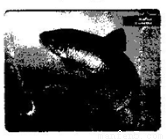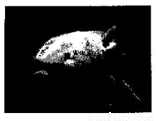
1.�ж������ص����˳������½���
There are various factors _______________ _______the lowered birthrates.
����ר�Ҽ�������ȫ���ů��Ҫ�����������
2.Many experts insist that the _____________ for this global warming can mostly be _______ _______ human activities.
3.��������Զ��ʧ֮ǰ����Ҫ�������Ǵ���������
We need to speak out ______ _______ _______ before they disappear _______ _______.
4.����˵ֻҪ��Ԥ�ȸ���ͻ����Żݡ�
You say that there is a discount ________ _________ I pay _______ _________.
5.����ȡ�úܶ�ҽѧ����,�����������·��ּ����������þ����������������������������������̡�
We have made medical advances, __________ ________ discovering the causes of diseases under microscopes_________ surgical procedures replacing diseased organs with donated ones.
1.contributing to
2.blame pinned on
3.on their behalf for good
4.provided that in advance
5.ranging from to
��������
1.contributing to���鶯�ʶ��Contribute to ���¡����ڷִ�������״�
2.blame pinned on���鶯�ʵ��÷���Insist�����Ž�ʱ��Ӧ����ʲôʱ̬��ʲôʱ̬��Be pinned on ����ڡ�
3.on their behalf for good �����ʶ��On one��s behalf ��������for good ��Զ��
4.provided that in advance���鶯�����ʶ��In advance ��ǰ��
5.ranging from to���鶯�ʵ��÷���Rang from ..to ..�ӡ������������ȡ�
���㣺������ӡ�


 ��������һ���þ�ϵ�д�
��������һ���þ�ϵ�д� Сѧ��10����Ӧ����ϵ�д�
Сѧ��10����Ӧ����ϵ�д�
| �꼶 | ���пγ� | �꼶 | ���пγ� |
| ��һ | ��һ��ѿγ��Ƽ��� | ��һ | ��һ��ѿγ��Ƽ��� |
| �߶� | �߶���ѿγ��Ƽ��� | ���� | ������ѿγ��Ƽ��� |
| ���� | ������ѿγ��Ƽ��� | ���� | ������ѿγ��Ƽ��� |
��Ŀ������Ӣ�� ��Դ��2015�츣��ʡ�����и߶�����ĩӢ���Ծ��������棩 ���ͣ��������
������ұߵ�������������Լ���������ᣬ��"How to face the college entrance examinations"Ϊ�⣬��Ӣ��дһƪ������
Ҫ��

1) ������������������������Լ���Ŀ��������ʵ���������Ҫ����������
2) ����150���ң�
3) �ο��ʻ㣺����֭ tonics
�鿴�𰸺ͽ���>>
��Ŀ������Ӣ�� ��Դ��2015�츣��ʡ������ѧ�ڵ�һ���������Ӣ���Ծ��������棩 ���ͣ��������
Generally, students��inner motivation with high expectations from others _________ essential to their development.
A. is B. are
C. was D. were
�鿴�𰸺ͽ���>>
��Ŀ������Ӣ�� ��Դ��2015�츣��ʡ�߶���ѧ�����п���Ӣ����������棩 ���ͣ��������
He didn��t _____ to what I said because his mind was on something else.
A. hold on B. take in C. catch on D. get over
�鿴�𰸺ͽ���>>
��Ŀ������Ӣ�� ��Դ��2015�츣��ʡ�߶���ѧ�����п���Ӣ����������棩 ���ͣ��������
Scientists are increasely _____ that the earth is getting hotter because of carbon dioxide and other gases.
A. content B. conscious C. convinced D. common
�鿴�𰸺ͽ���>>
��Ŀ������Ӣ�� ��Դ��2015�츣��ʡ�����и߶���ѧ����ĩӢ���Ծ��������棩 ���ͣ��Ķ�����
Seoul


A dangerous new bird flu in South Korea has spread nationwide despite efforts to make on the virus��Authorities have killed 2.8 million household chickens and ducks since the outbreak began��and the flu has also killed dozens of Baikal teal and other migratory birds��As yet��there are no reports of human infections��Scientists are puzzling over where the H5N8 flu��never before seen in a highly pathogenic����ԭ�ģ�form��originated��
Portland��Oregon

A tiny chub ������)has bounced back from near extinction(���) ��The U.S. Fish and Wildlife Service (FWS)says populations of the Oregon chub are healthy enough to remove the 9-cm-long fish from its list of threatened and endangered wildlife��Last week��s announcement marks the first time an endangered fish has recovered enough to be delisted
After the 1940s, the chub populations dropped sharply from habitat damage by pollution and dams��When the fish was listed by FWS in 1993��only nine remained��Predation(��ʳ)by large-mouth bass and other non-native fishes was the largest threat to the remaining chub��
Since then, the Oregon Department of Fish and Wildlife and other groups started 20 new populations of the chub in predator-free ponds Changes to dam management have lowered the threat to remaining habitat��
Mexico City


The axolotl salamander��s only known home in the wild��the Xochimilco canals of Mexico City��has become increasingly polluted��but recent reports of the salamander��s extinction have been overstated��
Two weeks after announcing that months of searching the canals hadn��t turned up any axolotls��scientists in Mexico City have some good news��two of the unique salamanders were spotted on 4 February ��There��s been an alarming reduction in population����says Luis Zambrano, a biologist at the National University of Mexico����but I can guarantee that is not yet extinct in the wild����
1.Which section of a magazine does the passage probably come from?
A��Around the World B��Health��Diet
C��Endangered Species D��Energy��Environment
2.which of the following titles would most probably fit the bank box?
A��Oregon Chub Swimming off Endangered Species List
B��Oregon Chub Put on the Endangered Species List
C��Pollution and Dam Management Threatening Oregon Chub
D��Predator-free Ponds Set to Be Built for Oregon Chub
3.we can learn from the passage that_________��
A��the population of salamanders is on the rise
B��measures have been taken to preserve Oregon chub
C��the Xochimilco canals are the only home to the salamander
D��scientists are sure about what caused nationwide New Bird F1u
�鿴�𰸺ͽ���>>
��Ŀ������Ӣ�� ��Դ��2015�츣��ʡ�����и߶���ѧ����ĩӢ���Ծ��������棩 ���ͣ��������
_________ to too much sunlight will do harm to your skin.
A��Having exposed B��Being exposed
C��To be exposed D��Exposed
�鿴�𰸺ͽ���>>
��Ŀ������Ӣ�� ��Դ��2015�����ʡ����8���������Ӣ���Ծ��������棩 ���ͣ��Ķ�����
After moving to the United States, immigrant groups trying to fit in tend to choose high-calorie, fatty foods in an attempt to appear more American, a new study finds. That's one reason why immigrants approach U.S. levels of obesity within 15 years of moving to America.
The researchers also did an experiment that measured whether or not the threat of appearing un-American influenced respondents' food choices��After being questioned about their ability to speak English��75 percent of Asian-Americans identified a typical American food as their favorite. Only 25 percent of Asian-Americans who had not been asked if they spoke English did the same.
When their American identity was called into question during a follow-up study, Asian-American participants also tended to choose typical American dishes, such as hamburgers and grilled cheese sandwiches, over more Asian fare. In that experiment, 55 Asian-Americans were asked to choose a meal from a local Asian or American restaurant. Some participants were told that only Americans could participate in the study. Those who chose the more typical American fare ended up consuming an extra 182 calories, including 12 grams of fat and seven grams of saturated fat(����֬��).
"People who feel like they need to prove they belong in a culture will change their habits in an attempt to fit in," said Sapna Cheryan, an author of the study and assistant professor of psychology at the University of Washington. "If immigrants and their children choose unhealthy American foods over healthier traditional foods across their lives, this process of fitting in could lead to poorer health," Cheryan added.
Social pressures, the study concluded, are at the heart of the problem. "In American society today, being American is associated with being white. Americans who don't fit this image even if they were born here and speak English feel that pressure to prove that they're American," said Cheryan.
1.According to the survey, _____.
A. Asia-Americans care less about their health.
B. 25 percent of Americans like junk food.
C. choosing food is related to Asian-American��s situation
D. immigrants are forced to eat junk food.
2.The underlined word ��fare�� in Paragraph 3 most probably means ��_____��
A. food offered as a meal B. a person taking a taxi
C. money spent on foodD. an arranged thing to do
3.According to Sauna Cheryan, ________.
A. what immigrants have done is ridiculous
B. American traditional foods are healthier
C. immigrants risk their health in order to fit in
D. American culture affects immigrants deeply
4.Which of the following should take the blame for the bad eating habit?
A. The situation of employmentB. The traditional culture
C. The American governmentD. The pressures from society
�鿴�𰸺ͽ���>>
��Ŀ������Ӣ�� ��Դ��2015�����ʡ������ѧ�ڵ�һ�μ��Ӣ���Ծ��������棩 ���ͣ��Ķ�����
Here is some must-know information from a handbook on how people behave in doing business in some countries��
In Brazil(������
Brazilians are warm and friendly��They often stand close when talking and it is common for them to touch the person on the shoulder��People often greet each other (particularly women)with light cheek kisses . Schedules tend to be flexible��with business meetings sometimes starting later than planned��But to be safe��be on time��Meals can stretch for hours--there��s no such thing as rushing a meal in Brazil��Lunches also can start in the mid to late afternoon��Brazilians are social��preferring face-to-face communication over emails or phone calls��
In Singapore
Singaporeans shake hands when they meet and often also greet each other with a small��polite bow��Business cards should be offered and received with two hands��Arriving late is considered disrespectful��So be on time��Efficiency(��)is the goal��so meetings and dealings often are fast-paced��Singaporeans are direct in their discussions��even when the subject is about money��Rank is important and authority is respected��This determines how people interact in meetings��For example��people avoid disagreeing outright with someone of a higher rank��
In the United Arab Emirates
In the UAE��status����λ�� is important��so the most senior or oldest should be greeted first with their titles��The handshake seems to be longer than elsewhere��So do not pull away from the handshake��Women should cover themselves when it comes to dress��Men also tend to be covered from neck to elbows(�ⲿ)and down to the knees��People do not avoid entertaining in their homes, but they also hold business meals at restaurants��Touching or passing food or eating with your left hand is to be avoided��When meetings are one-to-one, if your host offers you coffee��you should refuse��It might seem odd��but it is a cultural tradition��Coffee should only be accepted if it is already set out or presented��
In Switzerland
The Swiss tend to be formal and address each other by last name��They also are respectful of private lives��You should be careful not to ask about personal topics��Punctuality(��ʱ)is vital��something that comes from a deep respect for others�� time��Arrive at any meeting or event a few minutes early to be safe��They also have clear structure in their companies��Higher-ups make the final decisions��even if others might disagree��Neat��clean dress is expected��The Swiss follow formal table manners��They also keep their hands visible at the table and their elbows off the table��It is polite to finish the food on your plate��
1. The passage is mainly about_______��
A��communication types
B��the workplace atmosphere
C��customs and social manners
D��1iving conditions and standards
2. Why do Singaporeans avoid arguing with their boss?
A��They put efficiency in the first place��
B. They dislike face-to-face communication��
C��They want to finish meetings as quickly as possible��
D��They are supposed to obey the person of a higher rank��
3. In the UAE, when should you refuse the coffee if it is offered?
A. When greeting seniors.
B. When meeting the host alone.
C. When attending a presentation.
D.When dining with business partners.
4. In which country do people care about where to put their hands at the dinner table?
A. In Brazil. B. In Singapore.
C. In the United Arab Emirate. D. In Switzerland.
�鿴�𰸺ͽ���>>
����ʡ������Υ���Ͳ�����Ϣ�ٱ�ƽ̨ | �����к���Ϣ�ٱ�ר�� | ����թƭ�ٱ�ר�� | ����ʷ���������к���Ϣ�ٱ�ר�� | ������Ȩ�ٱ�ר��
Υ���Ͳ�����Ϣ�ٱ��绰��027-86699610 �ٱ����䣺58377363@163.com